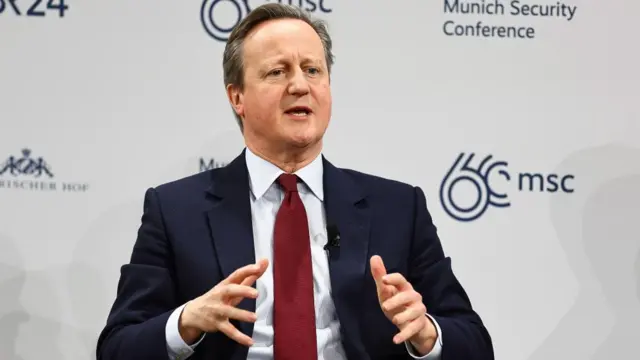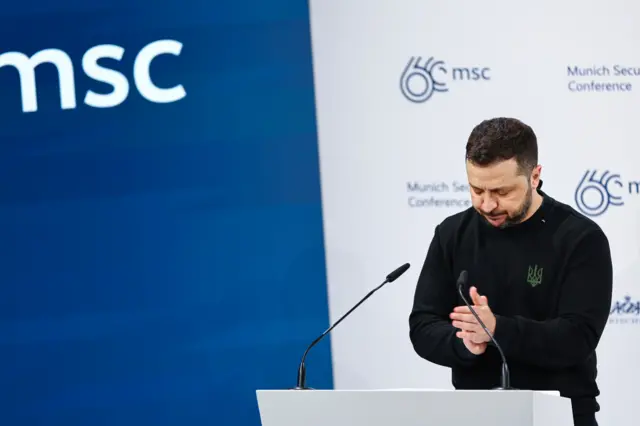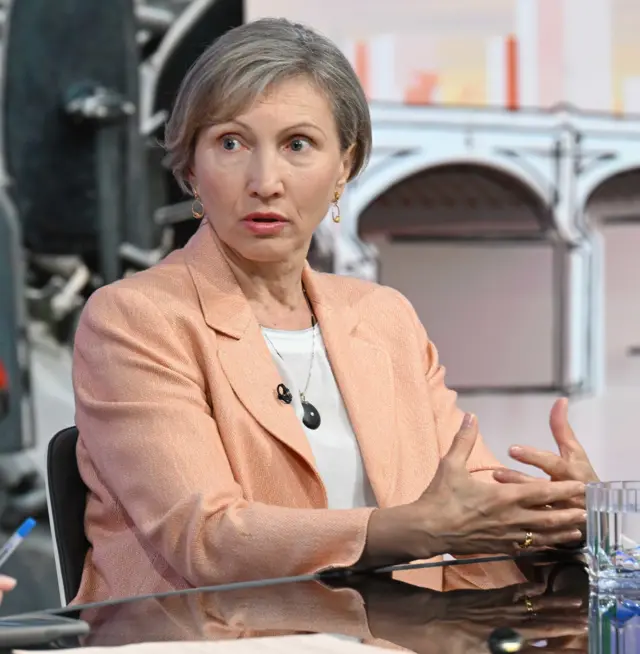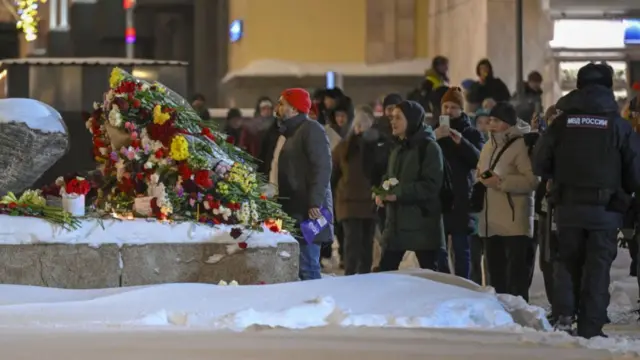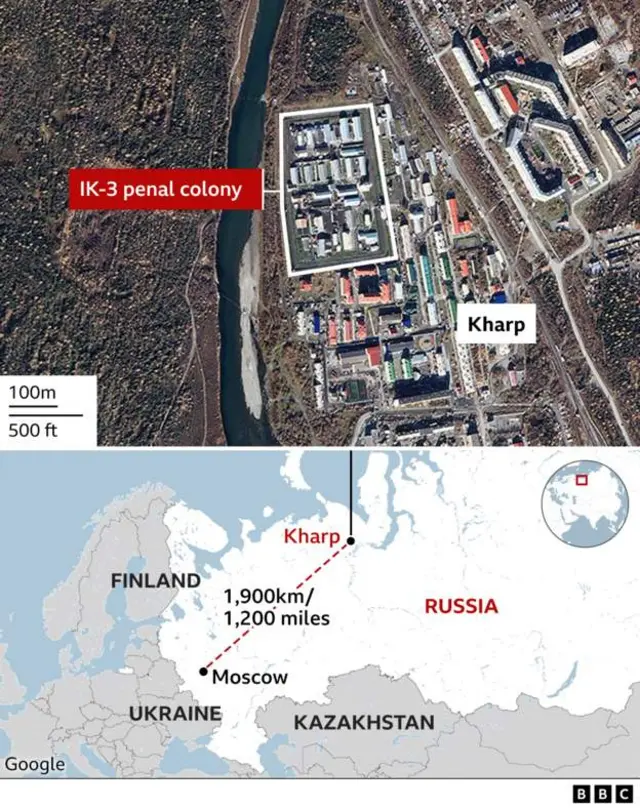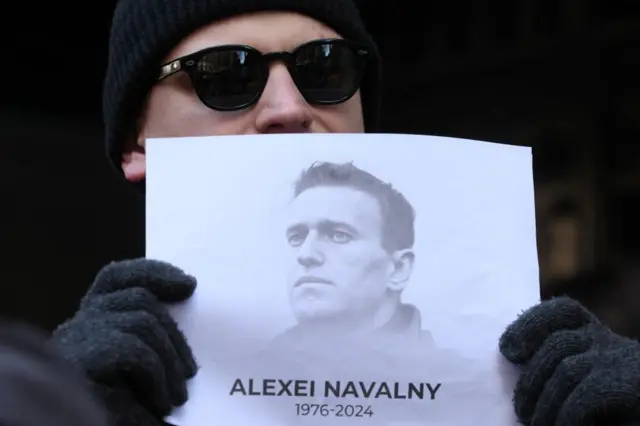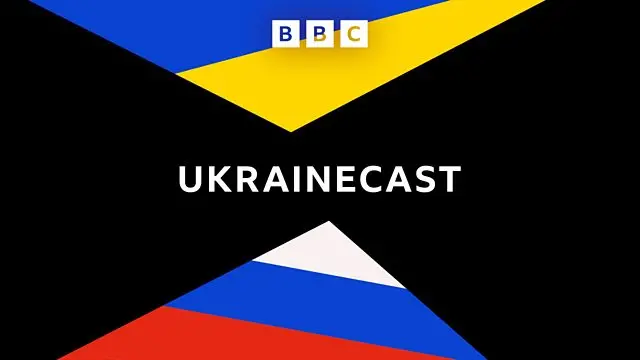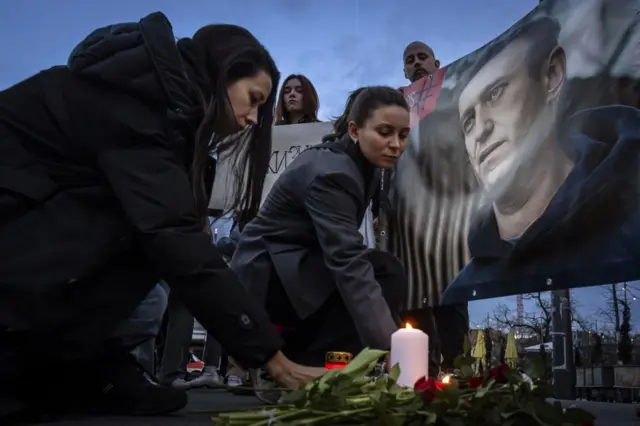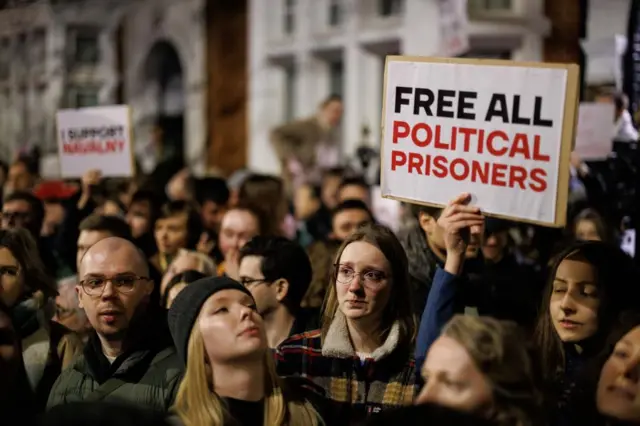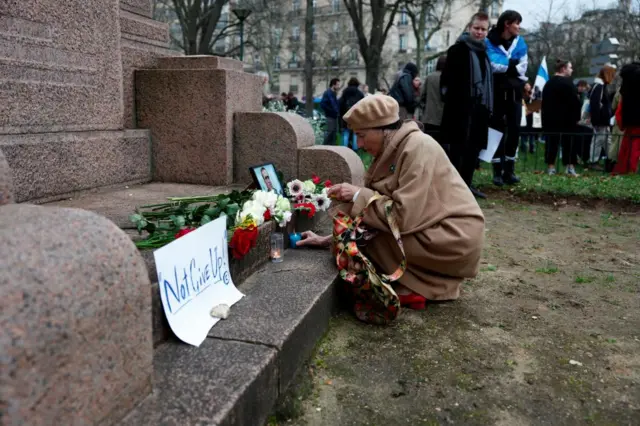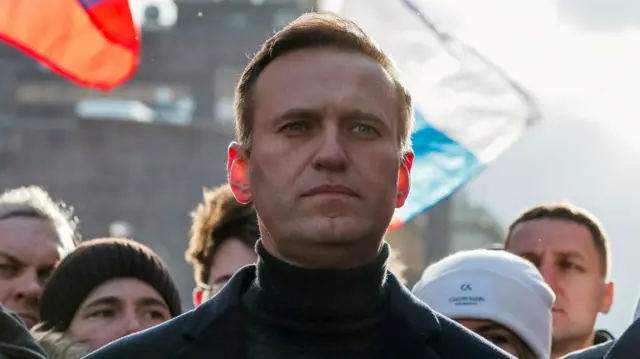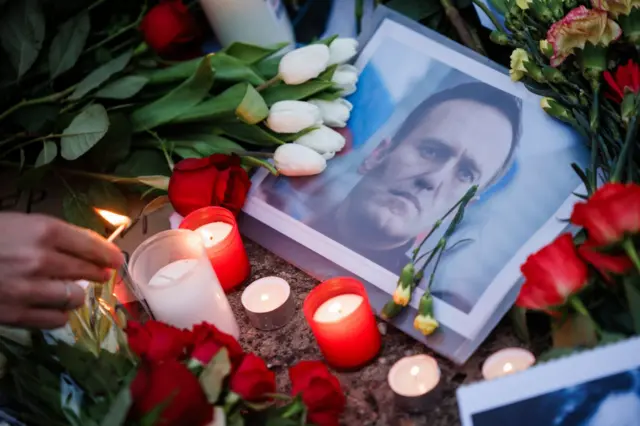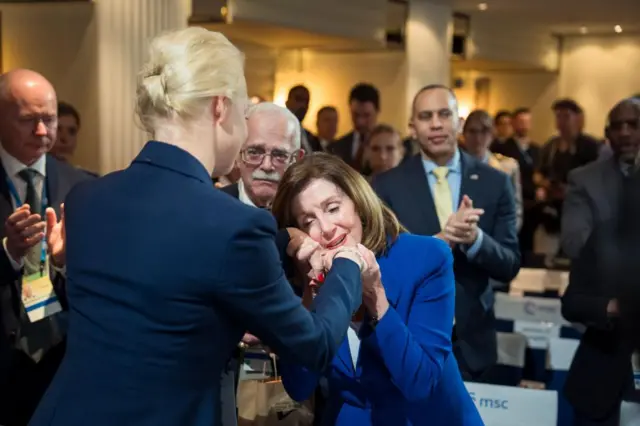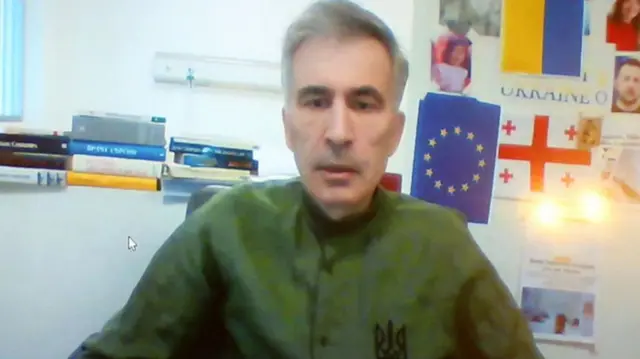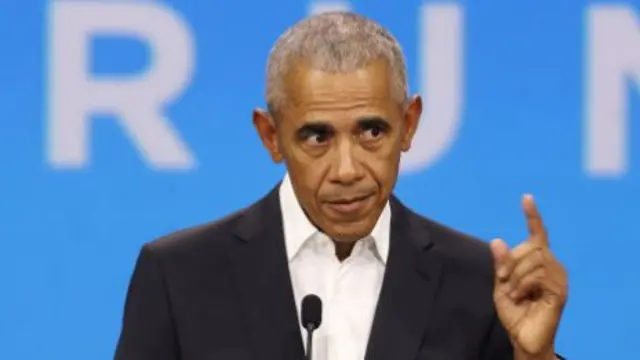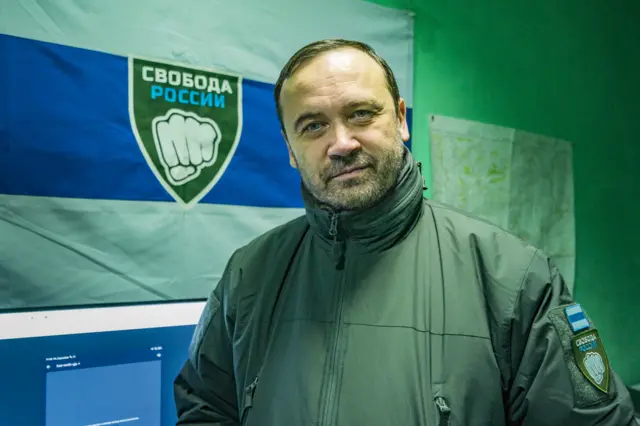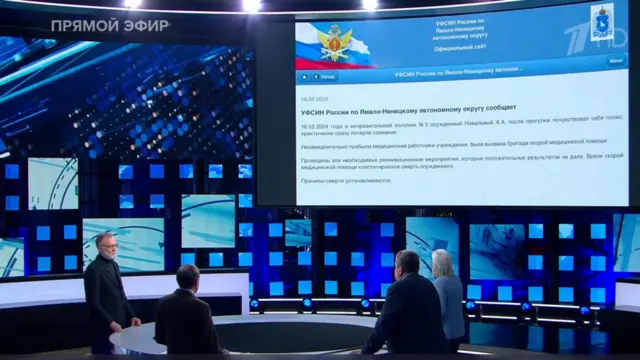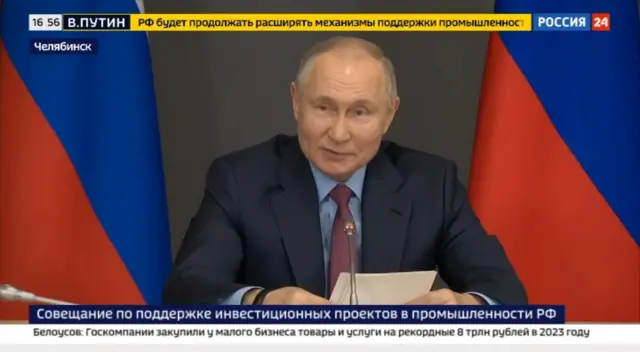Kremlin moving to stamp out any hint of mass gatheringspublished at 11:15 GMT 17 February 2024
 Sarah Rainsford
Sarah Rainsford
BBC Eastern Europe Correspondent
People laying flowers for Navalny in St Petersburg are detained
Police have been detaining people across Russia as they tried to lay flowers in memory of Alexei Navalny at monuments to Stalinist political repression.
The numbers are small so far, but likely to grow.
Videos from Moscow show one woman being dragged through the snow towards a police van by several officers. There are shouts of "shame" from the crowd.
The police then kettle those remaining on the snowy streets, pushing them away from the shrines that have sprung up to Navalny.
Last night, it seemed officers had orders to allow people to pay their tributes – as long as they then moved on.
Today, the orders seem to have changed.
The Kremlin is moving to stamp out any hint of a mass gathering, any potential explosion of anger at Navalny’s death.
In Novosibisrk, in Siberia, the authorities cordoned off the monument where people were heading to pay their respects. They claimed there were bomb threats. Mourners stuck their flowers into snowdrifts instead, nearby.
In Vladimir Putin’s Russia, the right to public protest has been gradually, but firmly, squeezed – until it’s almost non-existent. It is illegal even to stand with a protest sign in the street without permission. The punishment is a fine or a short spell in police custody.
But if that sign expresses support for Alexei Navalny, there’s a real risk of criminal charges – for extremism.
Navalny’s entire political organisation – including all its offices across Russia – has been declared "extremist" on a par with terrorist groups like Isis or Al-Qaeda. It means anyone with any links to Navalny – or showing support for him and his team – is taking a major risk.
